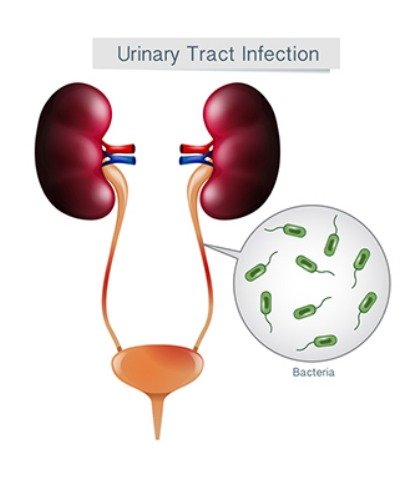UTI 101: What to Anticipate and How to Take Control
By: Cate Bobitz
What is a UTI?
A Urinary Tract Infection, commonly known as a UTI, occurs when bacteria enter the urethra and contaminate the urinary tract (the kidneys, bladder, or urethra.) The most common bacteria is Escherichia coli, known as E. coli. Over 60% of people with vaginas and 12% of people with penises will have at least one UTI in their lifetime. 1 in 4 people with vaginas will have a repeat infection.
Symptoms of a UTI
UTIs aren’t one-size-fits-all. Symptoms can include pain or burning while urinating, frequent urination, feeling the need to urinate despite having an empty bladder, bloody urine, pressure or cramping in the groin or lower abdomen, and bad-smelling or cloudy urine. It is important to get treated as a UTI can turn into a kidney infection within a few days or even a few hours! This can lead to serious problems and symptoms like fever, chills, lower back pain, nausea, or vomiting. If you're experiencing these symptoms, seek medical attention as soon as possible. It is important to recognize that other conditions such as STIs, vaginitis, diabetes, and prostatitis can mimic UTI symptoms.
What can I expect at a UTI appointment?
Commonly, a healthcare provider is able to diagnose a UTI solely based on symptoms. If someone is young, healthy, and experiencing standard symptoms, they may be able to diagnose and treat them without testing. A test is essential if your symptoms are severe, getting worse, or are recurrent, if something unusual could be causing your symptoms, if you're pregnant, or if you have other medical problems.
The most common UTI test is called a urinalysis. If a doctor orders this test, you will clean your genital area to kill external bacteria and collect a cup of your urine (all in the clinic). A urinalysis, which is a simple test that takes only a few minutes in office, will be performed on your urine sample.
If your test comes back positive for a UTI, some common antibiotics used to combat it include Macrobid, Keflex, Bactrim, Augmentin, etc. These antibiotics kill or stop the bacteria from growing by attacking the bacterial cell walls and slowing bacterial reproduction, which gives your body the chance to fight the infection. It is important to take the medication as prescribed and finish all the medication as stopping the antibiotic early can lead to remaining bacteria becoming resistant to antibiotics, meaning they can't be killed by antibiotics. As such, you should only be taking them when you have an active infection.
At-home UTI testing
There are different at-home tests you can buy at a pharmacy or online (like AZO). These tests can be helpful due to their availability and lower prices. These tests usually come in strips, similar to the dipsticks used in a healthcare provider’s office. Typically, an at-home test is conducted by holding a test strip in a sample of your urine and looks for white blood cells, nitrite, and in some tests, pH. It’s important to note that a negative at-home test doesn’t always mean you’re UTI-free and talking to a licensed healthcare provider is the best way to know for sure. Not all UTIs are accompanied by nitrite, so false negatives can occur and user error is high since these tests are not done by experienced professionals.
How can I prevent a UTI?
Bladder health is crucial in preventing infections. Some ways to prevent UTIs include urinating after sexual activity, staying hydrated, choosing to shower instead of taking baths, wiping front to back, not holding in urination, and eliminating the use of genital “hygiene” products (including, douching, sprays, or powders). People are more prone to UTIs if they are sexually active, pregnant, in menopause, are in the age range of 18-39, have diabetes, use spermicides or a diaphragm, or have kidney stones.
Bridgercare’s Resources
Bridgercare offers multiple services including STI Testing, Annual Exams, Pregnancy Tests, & More — For All Genders — Bridgercare. Click the link to learn more about these services or to schedule an appointment.
Pee without pain, UTI's not a game!


